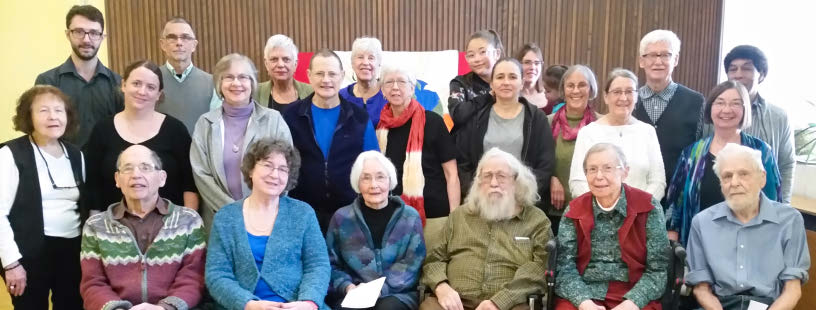Bathurst United United on helping foreign migrant workers

For Reg McQuaid and his fellow congregants at Bathurst United Church, Toronto, support for foreign migrant workers is personal. Migrant workers at fastfood outlets serve him coffee, and he buys produce grown by migrant workers at the food co-op where he and his wife, Joan, are members. At their retirement residence, foreign caregivers look after them. While greatly appreciative of the services migrant workers provide, the McQuaids are concerned about their working and living conditions.
“The current laws in Canada put the workers in a very precarious position,” says McQuaid, who has been with Bathurst United since 1986. “They cannot demand better wages or working conditions without risking losing their ability to work in Canada.”
Over the last 60 years, foreign caregivers have had to navigate Canada’s Temporary Foreign Worker Program to apply for permanent residence, despite undergoing a thorough screening process prior to coming to Canada. This program has led to widespread complaints, well-documented cases of exploitation and abuse of workers by employers and recruiters, years of separation from families, and uncertainty about whether or when permanent residence will be granted. Other migrant workers, who typically work in fast-food, agriculture, and fish-processing industries, cannot apply for permanent residency. In some cases, the separation and the stress it creates have led to family breakdowns and mental health challenges.

Canada’s Caregiver Pilot Program ends in November 2019. This is an opportunity to urge Immigration, Refugees and Citizenship Canada (IRCC) to safeguard the well-being of foreign caregivers, including the ability for them to become permanent residents, while also extending this support to all migrant workers. The Canadian government has made some progress in improving the lives of foreign workers. The application backlog for caregivers has been reduced, the “4-in, 4-out” rule— four years of work and four years out of the country—has been eliminated, and positive changes have been made to the medical admissibility clause for applicants and family members with disabilities. While this is good news, much more needs to be done.
Continue reading here.
This article was first published in Mandate Magazine, Winter 2019 authored by Connie Sorio.
NOTE: On February 23, 2019, IRCC Minister Ahmed Hussen announced that in November the Government of Canada will replace its Caregiver Pilot Program with two 5-year pilot programs that will provide migrant caregivers with a pathway to permanent residence and the flexibility to change jobs quickly and easily. They will also be able to bring their family members via work permits and study permits.He also announced that caregivers who have recently arrived in Canada and who are unable to meet the current program’s 2-year work qualification and 1-year post secondary education requirement, will have access to the Interim Pathway for permanent residence. This article was written prior to the announcement.
Find KAIROS’ statement about the announcement of the changes to the Caregiver Pilot Program here: https://www.kairoscanada.org/canadas-announced-pathway-permanent-residency-good-news-migrant-caregivers








